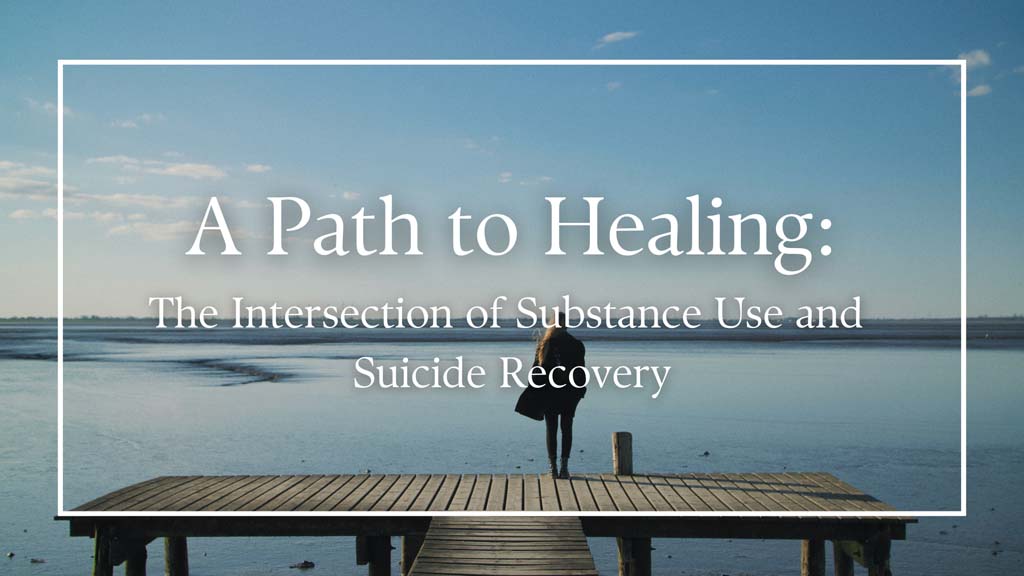In the past decade, suicide rates in the United States have skyrocketed and continue to rise, especially among younger and minority populations. In 2021 alone, the US witnessed over 48,000 suicide deaths, averaging roughly one death every eleven minutes, according to suicide statistics published by the Centers for Disease Control and Prevention. However, seeking help is not always as simple as making a call.

The stigma surrounding suicide and substance use in our society can be detrimental, hindering recovery and amplifying the challenges faced by individuals grappling with these issues. Prevailing misconceptions and judgments isolate those in need, preventing them from seeking the help and support they deserve. To overcome these obstacles, shedding light on the importance of tackling stigma head-on and promoting understanding and compassion in substance use and suicide recovery is crucial. By delving into the harmful effects of stigmatization, we can begin to dismantle barriers and foster an environment that supports the well-being and recovery journey of those overcoming substance use, suicidal ideations, or both.
Substance Use and Suicide: A Complex Connection

Substance use and suicide are intertwined in a multifaceted relationship that requires care and understanding. Research consistently reveals a correlation between substance use and an increased risk of suicidal ideations, as well as substance use among those suffering from suicidal behaviors. It is crucial to recognize the impact that substance misuse can have on mental health, exacerbating feelings of hopelessness and despair while increasing the likelihood of reckless and dangerous actions.
Recovering from a substance use disorder is more than a matter of willpower and perseverance. Substance misuse can alter the brain’s chemistry, leading to imbalances in mood and cognition that must be addressed for healing to occur. While there is no direct correlation between substance use and suicidal ideations, they are often linked diagnoses. If an individual relies on substances as coping mechanisms or a means of escape, it can further contribute to emotional distress and an increased vulnerability to suicidal thoughts. This intricate connection highlights the need for comprehensive support systems that address both an individual’s substance use and mental health issues concurrently.
Moreover, substance misuse can intensify the sense of isolation and shame often experienced by individuals at the beginning or during their recovery journey. The negative consequences of substance abuse, combined with the social stigma attached to it, can create a vicious cycle that perpetuates feelings of hopelessness, guilt, and abandonment. By addressing the complex interplay between substance use and suicide, we can pave the way for meaningful conversations, compassionate understanding, and comprehensive approaches to healing and recovery, while also developing effective prevention strategies.
Overcoming Suicidal Ideations: Navigating the Challenges

Overcoming suicidal ideations is a complex and challenging journey that requires immense strength, resilience, and support. One of the primary challenges is the emotional turmoil experienced by those struggling. Feelings of despair, loneliness, and hopelessness can be overwhelming, making it difficult to envision a future free from pain. As a result, individuals may turn to substance use as a means to ease their suffering. Providing a safe and non-judgmental space where individuals can express their emotions, seek help, and receive the necessary support is crucial.
Societal factors also play a significant role in perpetuating suicidal ideations and limiting access to support. Stigma, shame, guilt, and embarrassment often prevent individuals from reaching out for help, fearing judgment, dismissal, and rejection. The fear of being labeled as “damaged” or misunderstood further isolates those struggling and strengthens their resolve to avoid seeking professional assistance. Once isolated and feeling villainized by society, many individuals dealing with suicidal behaviors may resort to substance use as a means of relief. Studies show that individuals with a substance use disorder are ten to fourteen times more likely to die by suicide, depending on the substance in question. Regardless of whether individuals turn to substance use as a response to their ideations or their suicidal ideations have led to substance use, the emotional and psychological toll is immense.
However, fostering a supportive environment that promotes empathy and understanding allows us to dispel misconceptions and reduce stigma surrounding mental health, substance use, and suicidal ideations. By addressing societal factors that contribute to suicidal ideations, encouraging open conversations, and providing compassionate support, individuals will be empowered to seek the help they need without fear of judgment or shame. As a society, it is crucial to work towards breaking barriers and providing necessary tools and nonjudgmental support for individuals on their journey towards overcoming suicidal ideations.
Fostering Understanding and Compassion in Substance Use Recovery

Fostering understanding and compassion towards individuals in substance use recovery is crucial. By addressing societal stigma and advocating for empathy and supportive attitudes, especially when someone reveals their struggles with suicidal behaviors, we can create an environment that benefits the healing process. Some practicable tips for helping a loved one who is struggling include educating oneself about substance use disorders, actively listening without judgment, and validating their experiences. Additionally, reframing language and using person-first language when responding to a request for help can reduce some of the perceived stigmatization. It’s essential to keep in mind that this may not be the first time someone has opened up about their struggles with substance use and suicide, and depending on their previous experiences, opening up can feel nearly impossible. By openly fostering empathy and compassion in our personal relationships, we can begin to break down barriers, reduce stigma, and create a more supportive society for individuals in recovery.
As we strive to foster understanding and compassion towards individuals in substance use recovery and respond to their struggles with empathy, it’s important to recognize the role of personal recovery coaches in providing crucial support outside of the home. Personal recovery coaches play a crucial role in supporting individuals overcoming suicidal ideations and substance use. They provide specialized guidance, compassionate support, and a safe space for expression. At Maximum You Coaching, individuals are empowered to develop coping strategies, build resilience while healing, and find hope for the future. Through thoughtful collaboration, Maximum You Coaching will assist in creating a personalized recovery plan, offering accountability, and helping clients make positive changes in their lives and futures. Beyond the general guidance a personal recovery coach provides, Maximum You’s coach will provide tangible tools for managing triggers and support in rebuilding and enjoying a fulfilling life. When seeking professional assistance, allowing a personal recovery coach to provide additional support on the path to healing substantially increases the chances for lifelong recovery. By addressing stigma, promoting understanding, and embracing compassion, an environment is created that fosters healing and offers hope to those struggling with substance use and suicidal ideations. Remember, you are not alone in your journey—recovery is possible, and your life holds immeasurable value.
If you or someone you know is in immediate danger due to suicidal thoughts, call 911.
If you or a loved one is close to finishing or has completed substance abuse or mental health treatment, Maximum You Coaching can provide continued support. Send an online message for more information or call today to schedule your appointment – both in-person or telephone session available.

